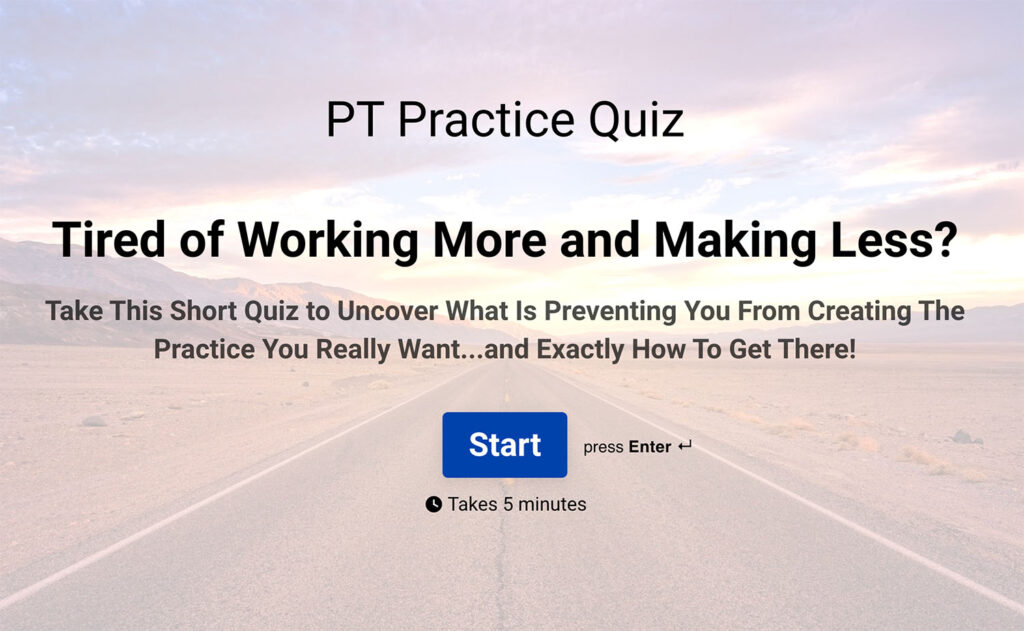
I find that a lot of practice owners are confident in their abilities as therapists, but when it comes to running a business and being an entrepreneur, they feel like a fraud—they think that they somehow “lucked into” their position and that they will be found out any day.
Known as “imposter syndrome”, these feelings of self-doubt affect people from all walks of life and experience levels, and it can have a negative impact on your ability to strategically grow your business.
Strategic planning for the future makes the difference between endlessly treading water to stay afloat and making waves. When you have a strategic plan in place, your business becomes more profitable. You reach more patients, becoming more focused about who you’re treating, and the problems you most want to solve in your community. You get more time away from work, for yourself, your family, and your other passions and pursuits.
But how are you supposed to do that important strategic work when you feel like somebody forgot to check your ID when let you in to the business owner group?
It might surprise you to hear, but more self-confidence isn’t what you need. You need more self-compassion.
A powerful, emerging body of research shows that self-compassion—our ability to be kind to ourselves, especially under difficult, challenging circumstances—is a critical component of success, long-term happiness, and prosperity.
NOW is the time to get strategic about your business, and put a plan together for the growth you want to achieve next year. A lot of overburdened, overwhelmed practice owners won’t start or will give up on this process, and will miss out on the opportunity to grow their business.
Developing a greater capacity for self-compassion can change that story.
Here are three ways increasing your self-compassion can help you plan for the future of your business better, faster, and more successfully:
Turn down the dial on ‘negativity bias’.
We are biologically hard-wired with a tendency to focus more attention on negative thoughts and experiences. Why all this attention to the negative? It’s a bias that evolved to help our ancient ancestors respond more effectively to threat and danger. In today’s world, this negativity bias can make it hard to see the future clearly, and take on the strategic planning and healthy risk taking that is essential to business growth. Strategic planning requires the ability to do more than avoid risk and failure.
That’s where self-compassion comes in. Self-compassion, as psychologists have noted, increases objectivity. It helps us tip the scales back away from the over-emphasis on the negative, to a balanced, realistic view of opportunities, risks and rewards. Increasing your self-compassion won’t make you over-confident, or blind to potential challenges—It will help you be less reactive to stress and uncertainty, more rational, measured and open to learning—In all, a more strategic thinker and planner.
Get more out of your strengths—and your weaknesses
Good strategic planning involves the ability to intentionally leverage your strengths. But you have to be able to see your strengths to do that.
Self-compassion makes us more objective, and better assessors of ourselves and our businesses. Instead of endlessly focusing on our fears and weaknesses—and overlooking strengths (about your own skills or the performance of your business)—self compassion helps you see clearly what you’re already doing well.
It also will help you to identify and accept (without self-critical judgment) where your weak spots are. That puts you in a better position to get the help, guidance and support you need to learn what you don’t know, so you can implement the systems that can transform you practice.
Step up to challenges
You need to be at your mental and intellectual best when you’re charting the future of your business. And to make that future happen, you need to be able to perform at top of your game over the long-term.
That all takes resilience. The coping skills that accompany a resilient mindset will help you navigate stress, avoid burnout and feeling overwhelmed, and deal with setbacks and challenges without getting defeated or scaling back on your dreams.
It’s self-compassion, not self-confidence or self-esteem, that helps us cultivate greater resilience. A growing body of research shows that self-compassion increases our ability to respond positively to stressful, difficult circumstances, to find our way through obstacles and challenges.
Resilience is important for your health and well being. It’s an essential component of strong, effective leadership. And, it’s key to creating the strategic vision of growth you want for your practice.
I invite you to join me for the Practice Transformation Winter Workshop in Gaithersburg, MD from December 12th – December 13th. This immersive, hands-on workshop will cover topics around marketing, time management, revenue generation and will provide you with the tools needed to delegate, automate and grow your practice!


